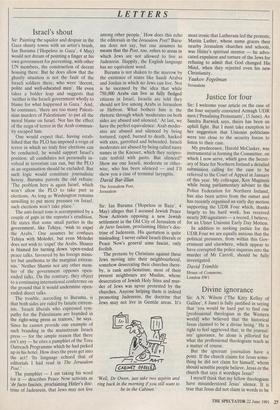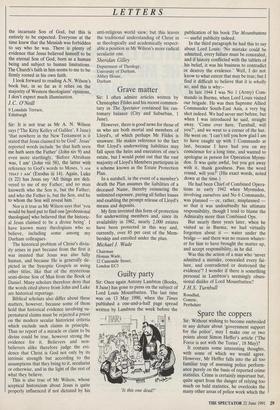Divine ignorance Sir: A.N. Wilson (`The Kitty Kelley of Galilee',
8 June) is fully justified in saying that 'you would be hard put to find one [professional theologian in the Western world] who believed that the historical Jesus claimed to be a divine being.' He is right to feel aggrieved that, in the journal- ists' ignorance, he alone is pilloried for what the professional theologians teach as a matter of course.
But the ignorant journalists have a point. If the church claims for Jesus some- thing he did not claim for himself, whom should sensible people believe, Jesus or the church that says it worships Jesus?
I myself think that my fellow theologians have misunderstood Jesus' silence. It is true that Jesus did not claim in words to be
LETTERS
the incarnate Son of God, but this is entirely to be expected. Everyone at the time knew that the Messiah was forbidden to say who he was. There is plenty of evidence that Jesus believed himself to be the eternal Son of God, born as a human being and subject to human limitations. The Church's faith in him seems to me to be firmly rooted in his own faith.
I look forward to reading A.N. Wilson's book but, in so far as it relies on the majority of Western theologians' opinions, I don't expect much illumination.
J. C. O'Neill
9 Lonsdale Terrace, Edinburgh



























































 Previous page
Previous page